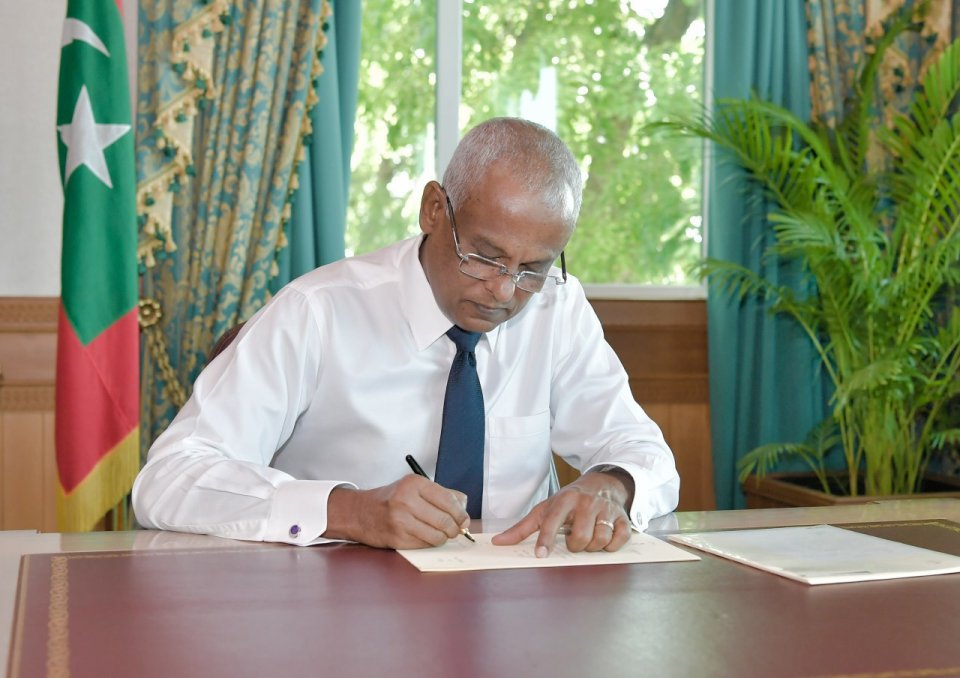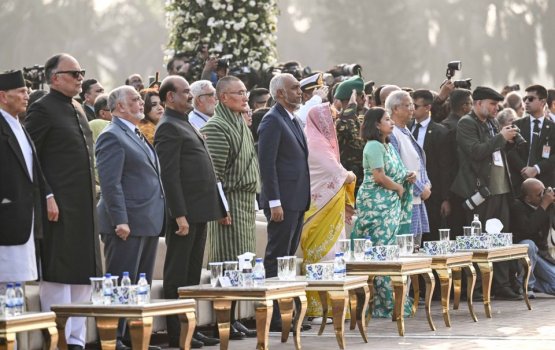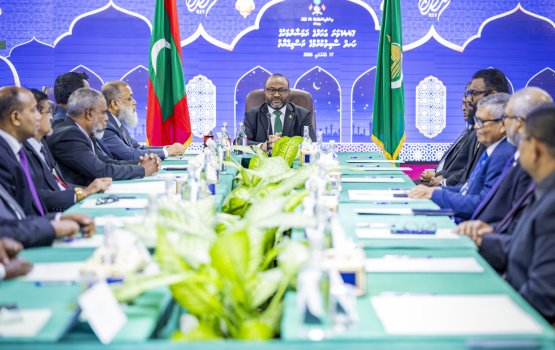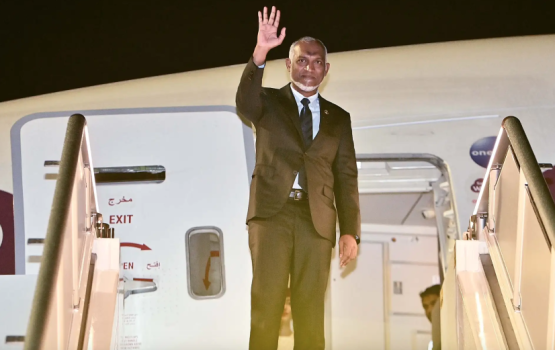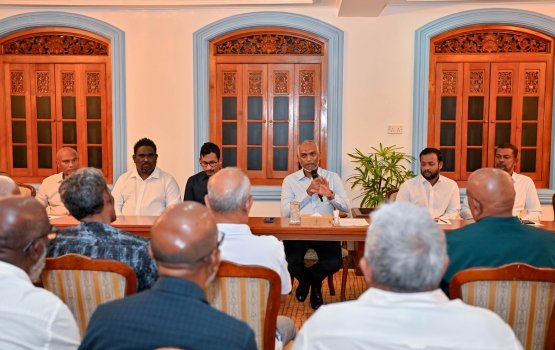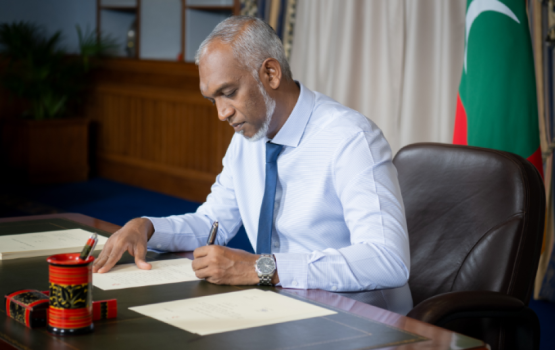President Ibrahim Mohamed Solih has ratified the Covid-19 Special Measures Bill 2020, which will enter into force as Law No.20/2020.
The legislation had earlier been passed by the People’s Majlis during the 33rd sitting of its second session this year, on 6 September 2020.
The President's Office said that the Act’s provisions set in place special guidelines to help the country’s recovery and resilience efforts relevant to the ongoing pandemic, Covid-19.
It adds safeguards against the disease’s impacts by facilitating assistance to families struggling to access basic necessities, and by ensuring temporary shelter to those in need, among other precautionary measures to prevent homelessness.
Similarly, the Act sets guidelines on special leave policies for employees unable to perform their routine work-responsibilities due to Covid-19. Barring extraordinary circumstances, it prevents alterations being made to an employees’ status in response to the disease.
The Act also includes mechanisms to ensure that the State can continue to provide all of its functions without interruption, despite the pandemic.
Once it becomes law, the Act’s provisions will become effective 60 days following the expiry of the current state of public health emergency enacted in response to Covid-19, or 60 days following the expiry of any state of emergency declared in relation to Covid-19.
Meanwhile, the President's Office also said that President Solih had ratified amendments to two Acts today.
It said that he ratified the second amendment to the ‘Human Rights Commission Act’ (Act No: 6/2006). The amendment was passed by Parliament on 6 September 2020, at the 33rd sitting of its second session.
The amendment places added safeguards to prevent corruption within the Human Rights Commission of the Maldives (HRCM). It mandates that all appointed individuals must declare their assets, and ensures that they cannot unduly benefit from their position or exercise undue influence. It further delineates clear ethical guidelines for members to abide by.
President Solih also ratified the second amendment to the Audit Act (Act No: 4/2007).
The President's Office said that the amendment was passed by Parliament on 6 September 2020, at the 33rd sitting of its second session.
The amendment is intended to ensure that the Auditor General can perform his or her mandate independently while adding safeguards against undue influences that would compromise the integrity or impartiality of the office.
Similarly, it includes ethical guidelines the Auditor-General must abide by, to prevent the misuse of the office’s influence for personal gain. It also prohibits the Auditor-General from being concurrently employed elsewhere during their tenure, or from engaging in any activity that would result in a conflict of interest.
Following ratification, the Act has been published in the Government Gazette.

